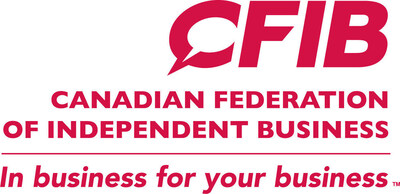TORONTO, April 24, 2025 /CNW/ – The Canadian economy is estimated to see muted growth in Q1 2025 and expected to see significant contraction in the second quarter of the year, finds the latest Main Street Quarterly report by the Canadian Federation of Independent Business (CFIB).
CFIB logo (CNW Group/Canadian Federation of Independent Business)
Key highlights of the Q1 2025 edition of the Main Street Quarterly report
CFIB’s estimates and forecasts in partnership with AppEco suggest the Canadian economy grew by 0.8% in Q1 but is expected to significantly contract in Q2. The total Consumer Price Index (CPI) inflation rose to 2.4% in Q1 2025 and is expected to further increase to 2.7% in Q2 on a yearly basis.
After seeing good recovery at the end of 2024, private investment is estimated to see a major drop of 13.9% in Q1, with the Q2 forecasted even lower at -19.1%.
Private sector job vacancy rate held steady at 2.8 in Q1 2025. This represents 393,400 unfilled positions.
A special analysis highlights that SMEs are under growing pressure from weak demand and rising input costs. Exporters are the least able to pass on tariff-related costs, while importers have more flexibility to adjust prices.
The quarterly sectoral section highlights how different industries are coping with these pressures.
Manufacturing and wholesale firms are the hardest hit by low demand due to their trade exposure.
Agriculture, hospitality, and arts, recreation and information businesses are less able to pass on costs and more likely to absorb them fully.
One-third of wholesale firms have already increased their prices. Moreover, two-thirds of firms in hospitality and construction plan to increase their prices once supplier costs stabilize.
Conclusions by CFIB’s chief economist and vice-president of research, Simon Gaudreault:
Small businesses are feeling the pinch. The raging trade war will likely drive up the costs of doing business and lead to inflation. While the Bank of Canada maintained its key interest rate, it will take bold policy changes for small businesses to feel meaningful relief. That would include reducing taxes and adopting full mutual recognition of each other’s rules, permits and regulatory regimes.
Given how the long-term business confidence is at historically low levels, it’s not surprising that small businesses are pausing their capital expenditures. It’s nearly impossible for owners to plan expansions or investments when they’re not sure if their business will even be open in six months. Governments at all levels urgently need to balance the economic environment, so SMEs have the capacity to withstand the impacts of the trade war.
Story Continues
